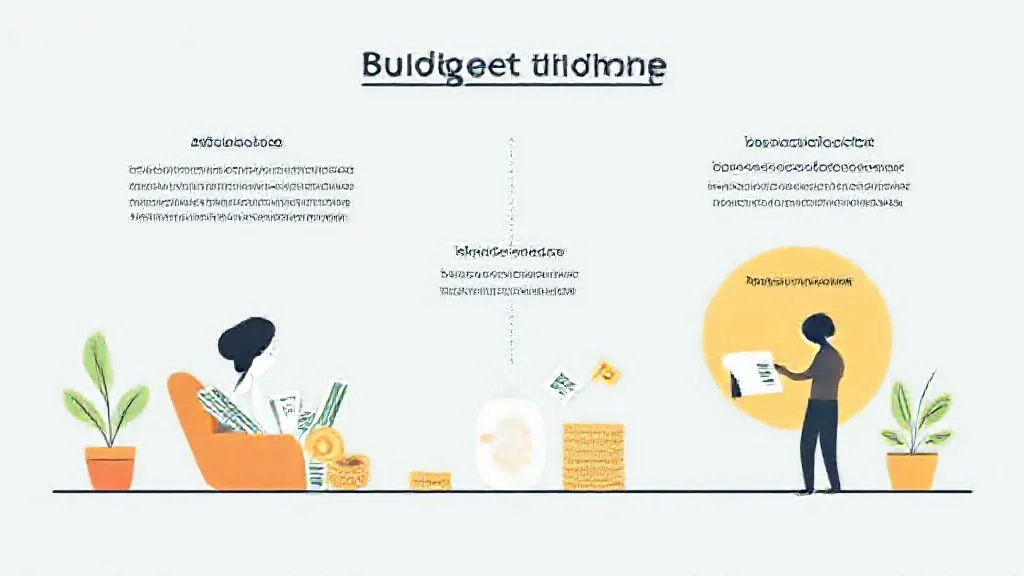Budgeting is a cornerstone of personal finance, yet many people struggle to create and stick to a budget. Understanding where budgeting fails for most individuals can provide insights into overcoming these challenges. This article delves into the common pitfalls of budgeting, drawing on historical perspectives, psychological factors, and practical solutions to enhance financial literacy and management.
The Historical Context of Budgeting Failures
Historically, budgeting has evolved from simple ledger systems used by ancient civilizations to sophisticated software applications today. Despite this evolution, the fundamental principles of budgeting remain the same: tracking income and expenses to achieve financial goals. However, many people fail to adapt these principles to their unique circumstances.
For instance, during the 2008 financial crisis, many individuals underestimated their expenses and overestimated their financial stability, leading to widespread budgeting failures. This historical context highlights the importance of understanding one’s financial landscape before creating a budget.
Psychological Barriers to Effective Budgeting
One significant reason budgeting fails is the psychological barriers that individuals face.
Cognitive biases, such as optimism bias, can lead people to underestimate their expenses or overestimate their income. According to behavioral finance experts, this often results in unrealistic budgeting plans. For instance, a person may believe they can save a substantial amount each month without considering unforeseen expenses, such as medical bills or car repairs.
Recognizing these biases is crucial for creating a more accurate and realistic budget.
Lack of Clear Financial Goals
Another common pitfall is the absence of clear financial goals. Without specific objectives, individuals may struggle to stay motivated and committed to their budgeting efforts.
Financial goals should be SMART: Specific, Measurable, Achievable, Relevant, and Time-bound. For example, rather than vaguely stating a desire to "save money," a person could set a goal to "save $5,000 for a vacation by next year." This clarity not only provides motivation but also allows for better tracking of progress.
Inflexibility in Budgeting
Many budgeting systems fail because they lack flexibility. Life is unpredictable, and a rigid budget can lead to frustration and eventual abandonment of the budgeting process. For instance, if someone allocates a fixed amount for groceries but faces unexpected expenses, they may feel discouraged and abandon their budget altogether.
Implementing a flexible budgeting approach, such as the 50/30/20 rule, can help individuals adapt to changing circumstances while still maintaining control over their finances.
Failure to Track Spending
Tracking spending is a critical component of successful budgeting, yet many people neglect this step. Without tracking, individuals may not fully understand where their money goes each month.
This lack of awareness can lead to overspending and financial stress. Utilizing technology, such as budgeting apps or spreadsheets, can aid in tracking expenses more effectively. For example, apps like Mint or YNAB (You Need a Budget) allow users to categorize their spending, making it easier to identify areas for improvement.
Ignoring the Importance of Emergency Funds
A significant oversight in many budgeting plans is the failure to prioritize emergency savings. Unexpected expenses can derail even the best-laid budgets. Financial experts recommend building an emergency fund that covers three to six months' worth of expenses.
This safety net not only provides peace of mind but also helps individuals stick to their budgets during financial emergencies. For instance, if a person has a job loss or a medical emergency, having an emergency fund can prevent them from going into debt.
Underestimating the Impact of Lifestyle Inflation
As individuals earn more, they often increase their spending—a phenomenon known as lifestyle inflation.
This can undermine budgeting efforts, as people may find themselves living paycheck to paycheck despite higher incomes. It is essential to recognize this pattern and maintain a frugal mindset, even as income increases. For example, instead of purchasing a new car with a higher salary, one might consider continuing to drive their current vehicle and allocating the difference towards savings or investments.
The Role of Accountability in Budgeting Success
Finally, accountability plays a crucial role in successful budgeting. Many people struggle to stick to their budgets when they lack support or oversight. Joining a financial group, working with a financial advisor, or sharing goals with friends and family can create a sense of accountability.
For instance, a budgeting buddy can provide encouragement and help individuals stay on track, making the budgeting process less isolating and more collaborative.
In conclusion, understanding where budgeting fails for most people is essential for developing effective financial management strategies. By addressing psychological barriers, setting clear goals, allowing for flexibility, tracking spending, prioritizing emergency savings, managing lifestyle inflation, and fostering accountability, individuals can improve their budgeting success and achieve their financial objectives.
